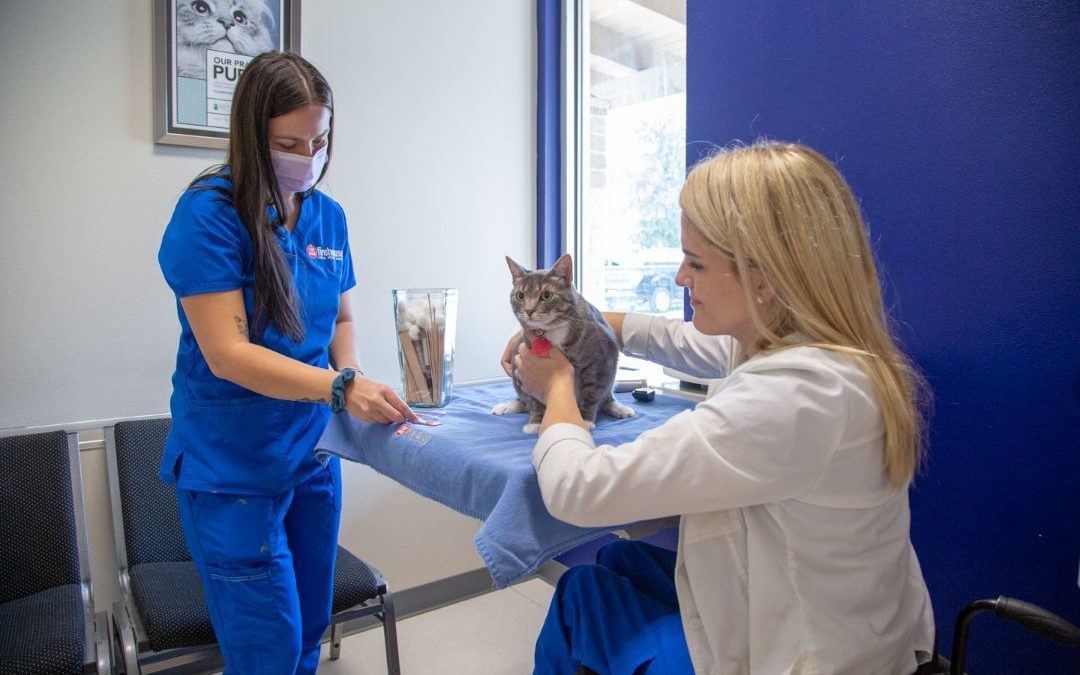Even though house cats have been domesticated for 10,000 years, their instincts still tell them to hide their vulnerabilities.
Cats are stoic. This trait can make it hard to know when they’re in pain.
Your cat may experience pain for many reasons: joint issues, tooth problems, bladder infections, and kidney disease. We here at Firehouse, Westlake, wanted to share with you some easy ways to recognize pain in your cat.
If your cat’s habits change, he might be in pain.
You know your cat better than anyone, but you still might ask yourself, “how do I know if my cat is in pain“? You’ll notice your cat isn’t acting like himself:
●Decreased appetite—Cats in pain stop eating or have a reduced appetite. They may also drink less.
●Social withdrawal—Your cat may withdraw and avoid social interactions. They might seek comfort and affection. A typically friendly cat may become aggressive.
●Bad litter box habits—Your cat may stop using the litter box. Or, you may notice that their stool is hard and dry, indicating constipation.
●Change in grooming routine–Is Fluffy looking unkempt? Or is she grooming more often? Overgrooming can cause an injured area with hair loss or skin infection.
Pain also lowers activity levels.
Changes can be subtle. So, things you can look for include:
●Decreased mobility—Your cat may move slower than usual, be reluctant to move, or limp when they do move. You might also notice they have difficulty getting up from a reclining position.
●Less jumping—Your cat may avoid jumping on surfaces they used to reach without fail. Or they will attempt to jump and fall.
Your cat’s postures and facial expressions.
Your cat’s body language and facial expressions, vocalization, and posture help your cat communicate. Know how to read his pain cues:
●Posture—They may arch their back or tuck in their abdomen.
●Expression—They may have enlarged pupils, flattened ears, and a furrowed brow.
●Vocalization—Their “meow” might sound different, or he might cry out. They might also breathe with an open mouth.
Many common pain relievers are toxic to cats. So, if you think your cat is in pain, schedule an appointment with us. We’re here for you 24/7. Contact our team so we can help relieve your cat’s suffering. We love them for their easygoing natures. Yet, there’s no need for our besties to suffer in silence.

